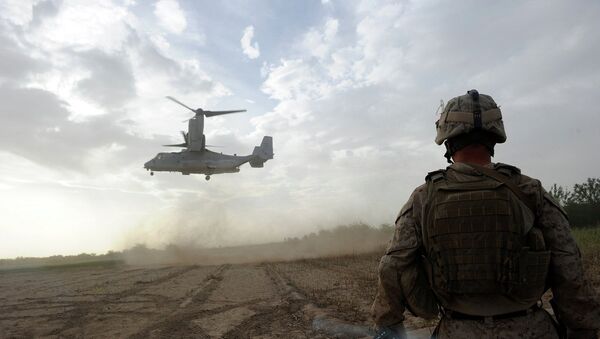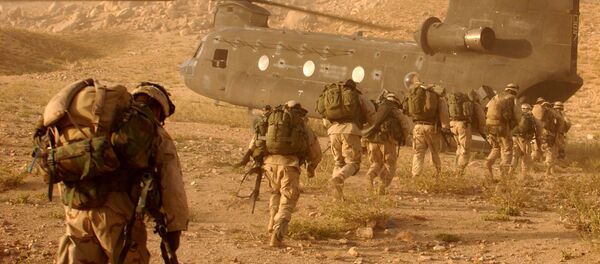WASHINGTON (Sputnik) — The US military needs to maintain several thousand troops in Afghanistan beyond the planned 2016 withdrawal deadline to ensure Afghan security forces do not implode as well as to have a presence to effectively track and attack the Islamic State [ISIL] and al-Qaeda, experts told Sputnik.
US Army General John Campbell, commander of US forces in Afghanistan, submitted five different recommendations to Pentagon and NATO officials proposing to keep the current US presence in Afghanistan beyond the December 2016 withdrawal deadline, The Wall Street Journal reported on Thursday.
"What we [the United States] fear most is that the [Afghan] military comes apart," Middle East Institute Resident Scholar Marvin Weinbaum told Sputnik on Friday. "That kind of withdrawal is going to affect their espirit de corps… and accelerate what has already begun to be some unravelling because of warlords reinvigorating their old militias."
Campbell reportedly proposed to extend the current US military presence of 10,000 troops beyond 2016 along with options to reduce levels to 8,000 or 5,000.
President Barack Obama’s decision to set a hard withdrawal deadline in the first place, Weinbaum argued, was a bad idea because it should have been based on conditions on the ground in terms of the progress of Afghan security forces.
"Now it is more than just about the Taliban," Weinbaum said of the Islamic State’s foothold in Afghanistan. "Now it’s about a much more formidable adversary that we face."
Brookings Institution scholar Michael O'Hanlon told Sputnik that the United States should leave at least several thousand troops in Afghanistan to "track and attack" al-Qaeda and the Islamic State.
O’Hanlon also said a US military presence beyond 2016 was critical to "shore up the confidence" of the Afghan government and people, in addition to performing specialized tasks that the Afghans are not fully ready to take on themselves.
A premature withdrawal in Afghanistan, he added, is hard to compare to the outcome in Iraq because the "dynamics of collapse" could be different.
"I think civil war [in Afghanistan] is the more likely result — a return to Afghanistan of the 1990s with al-Qaeda again present somewhere in the country," O’Hanlon emphasized.
On Friday, the United States and China jointly urged the Taliban to engage in direct talks with Kabul, the White House said in a press release after Obama hosted a state visit for Chinese President Xi Jinping.
NATO's International Security Assistance Force (ISAF) Joint Command mission in Afghanistan officially ended in 2014.
The current US plan in Afghanistan is to end military presence in the country by December 2016, while closing the remaining US bases there.


